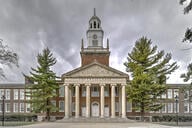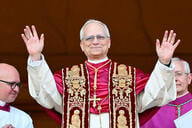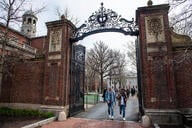You have /5 articles left.
Sign up for a free account or log in.
Seattle University is challenging the recently announced results of an election in favor of a part-time faculty union. “The issue is a jurisdictional one,” Father Stephen V. Sundborg, president, said in a statement Friday. “It involves a higher principle: the constitutionally protected right of Seattle University, as a faith-based institution, to carry out our core Jesuit Catholic educational mission free from government intrusion by the [National Labor Relations Board]. It is a right that we believe is important to the university and our Jesuit Catholic character to uphold.”
The union election took place in 2014, but ballots were impounded as the university challenged the rights of its adjuncts to bargain collectively. It argued that its Roman Catholic affiliation put it outside the jurisdiction of the NLRB, but a major 2014 board decision in favor of an adjunct union bid at Pacific Lutheran University opened the door to adjunct unions at religious institutions. A local NLRB office eventually decided that Seattle’s adjuncts could count their ballots, and the tally -- 73 for and 63 against -- was announced earlier this month.
Sundborg said in his statement that Seattle is not opposed to unions, and many of its employees already are unionized. The problem is faculty unions in relation to the college’s religious mission, he said. “For example, would the university be required to hire faculty openly hostile to our Jesuit way of teaching and Catholic identity?” he asked. “Would the university be prohibited from removing a faculty member who seeks to undermine our core religious identity?”
The faculty union is affiliated with Service Employees International Union. “We see the administration is doubling down on their specious claim of religious exception, by trying to pass off economic issues as religious issues,” Ben Stork, adjunct professor of film studies at Seattle, said in a news release. “In reality this is about not wanting to pay for the basic labor that the university runs on.”





